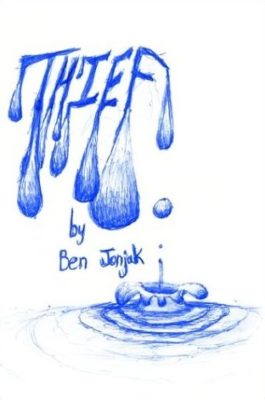 Peter Sotos’s early zines have pictures of ejaculating penises juxtaposed with pictures of missing children. Pure #1 and #2 were shocking, but also educational: front of house seats to a society where Rota Fortunae crushes even the smallest, the most innocent, and the least deserving. Rota Fortunae soon crushed Sotos, too – in 1986 he was charged and convicted on possession of child pornography. This book is part fiction, and part descriptions of his arrest.
Peter Sotos’s early zines have pictures of ejaculating penises juxtaposed with pictures of missing children. Pure #1 and #2 were shocking, but also educational: front of house seats to a society where Rota Fortunae crushes even the smallest, the most innocent, and the least deserving. Rota Fortunae soon crushed Sotos, too – in 1986 he was charged and convicted on possession of child pornography. This book is part fiction, and part descriptions of his arrest.
Pure was disturbing, and parts of it had a hero-worshipping quality that I didn’t especially care for (“The tape recording of the torture is remarkable. Although much is inaudible, and it is certain that much more took place than what is on the tape, it is still a great joy to hear – Brady’s mastery is clearly in evidence.”), but what happened to Sotos doesn’t feel right.
What he does is not morally different to what a news channel does. He exploits human misery, and so does ABC. He just happens to be direct, rather than mincing and prevaricating and pretending to be above it all. Tool describes a telling event. “The front cover of Pure #2 was an extreme close-up of a child’s hairless cunt being spread open by an adult. The night of my arrest, the three main networks in Chicago used me as their lead story, and they all showed close-ups of the cover.”
The first story is written in the second person, and consists of a psycho’s one-sided talk with (apparently) a kidnapped child. Cruel games and Faustian bargains ensue. There’s nothing but dialog in this story, and we’re left to imagine what’s happening to the child in between the kidnapper’s words.
The second story takes us on a exploration of inner-city prostitution, except it’s from the view of a laughing and jeering punter instead of a well-meant liberal documentarian. I like how Sotos writes from the perspective of the bad guy. Normally people writing from “the other side” do so mawkishly, as if they’re trying to make us aware that they’re not really like this in real life. Sotos relishes the role. “Eight” is framed as a sympathy letter to a mother who has lost a daughter, but midway through it changes into something unwholesome and disturbing.
In “Five”, Sotos takes it upon himself to educate us about kiddie porn. Porn featuring young babies, apparently, is not very interesting. The real kicks come from kids who are old enough to have some awareness of what’s happening. In the 80s, the media branded Sotos a pedophile. I’m wondering that he might be something worse than a pedophile. All a pedophile wants is to have fun. But what kind of neurosis would drive a purportedly normal man in his 20s to collect kiddie porn instead of postage stamps?
Superficially, I can understand the appeal of this kind of atrocity tourism. Innocence traduced makes for quite a spectacle, and Tool collects a lot of it. But I’m not convinced that’s the real reason. Sotos has published dozens of books in a career spanning thirty years, and for him it seems not a hobby but an obsession. Anyone will stop for a few seconds to rubberneck a car crash, but Sotos looks far longer and harder than most people…and inevitably, he ended up in a crash himself.
No Comments »
This is a self-published novella (back from the old POD days of LuLu and iUniverse, when this cost money) about a thief on the streets of Lima.
He starts out as an orphan. He gets snatched by a professional beggar who uses him as a prop to gain sympathy from tourists. He gets adopted by a pedophile priest who rapes him. And so on, and so forth. The book doesn’t do subtlety.
Thief is annoying and overbearing even by self-pub standards. Ben Jonjak takes apart the fourth wall with a wrecking ball, interrupting his story sometimes multiple times per page to rant directly to the reader about global poverty and rich Americans and white people and Oprah. Thief is one of those books that shouts stage directions at you. “Isn’t this sad? Isn’t this outrageous?” This is a hallmark of a poor writer: telling the reader what to think and feel instead of allowing those things to happen naturally.
Nobody edited this book – maybe it’s from a country where red pens are illegal. Witness the main character’s name suddenly change from “Junior” to “Patch” without explanation, punctuation both missing where it belongs and added where it doesn’t, countless orphan clauses (appropriate?), as well as lapses into outright illiteracy (an actual quote: “Take it! Seize it! Warship every day as a Devine blessing to mold yourself into a keen, perfect thing.” Calm down, Down Syndrome Tony Robbins.)
So the book has problems. It’s awkward and is barely written in English at times. But I’ll say this: although I often put the book down, I always picked it back up again. It’s strangely interesting.
The author lives in Peru, and the book evokes a convincing milieau (note that I say convincing, not realistic). Even the self-indulgent parts – by way of a foreword, he spends a few pages complaining about how someone stole his wallet – add to the lived-in quality.
And there’s actually a fairly strong story here, particularly in the final section the thief finally starts getting proactive about changing his situation. Part of what’s frustrating about Thief is that it often ignores human agency – Junior/Patch is just a punching bag for fate. In the final pages it’s nice to see him fighting back at last, even if it’s in the worst way possible.
Thief is as obscure as small press books can get without being published in an enclosed bomb shelter, and the author appears to have given himself positive Amazon reviews under a fake name, which is a shame. But I don’t feel robbed by Thief. Self-published books are often shit but they’re also often compelling, and this book manages to be both.
No Comments »
 Stack all Osamu Tezuka’s comics in descending order of quality, travel downward about fifty thousand pages, and you arrive at things like Angel Gunfighter. Welcome to the land of Osamu Mehzuka.
Stack all Osamu Tezuka’s comics in descending order of quality, travel downward about fifty thousand pages, and you arrive at things like Angel Gunfighter. Welcome to the land of Osamu Mehzuka.
Angel Gunfighter was serialised in 1948, and is interesting because it shows the influence Western animation had on anime’s early years. The characters’ limbs have a boneless “rubber hose” quality similar to Mickey Mouse and Felix the Cat, and various other things seem redolent of the 1930s golden age, too.
This manga is Western in a couple of senses. For one, it is set in our romanticised version of the Wild West, complete with bars with batwing doors and random barrels that exist to get shot and leak liquid out of perfect bullet holes. For another, it’s Western in its storytelling aesthetic, too: plucky underdog trying to get the girl, and all that. I sort of wish Tezuka had done a more Japanese take on this kind of story. American art is well known for borrowing ideas from Japan (The Hidden Fortress becoming Star Wars, to use a famous example), and I suppose the reverse is true over there.
There’s a brief dramatis personae where we learn about the characters (Ham Egg, the rogue cop trying to take over the town – Monster, the half-Indian sharpshooter who is trying to stop said rogue cop from taking over the town, etc). Angel Gunfighter is a one volume manga, so there’s no question of the characterisation being presented organically in the story. There’s a couple of supporting characters who don’t have much to do. One suspects Osamu Tezuka was just importing Western tropes without considering whether the story had a use for them.
Occasionally Tezuka’s formidable imagination takes flight in spite of itself (I liked the farmer who has trained his pigs to be soldiers). These scenes of inspiration are fairly rare, and the comic spends much of its time reciting Western cliches like some sort of catechism. There’s whooping Indians on horses descending on hapless caravans, and a dame who gets tied to train tracks, and a couple of gunfights that end with someone dangling off a cliff.
Monster is a particular problem. He’s perfect, anodyne, and Mary-Sueish – therefore, boring. I like Ham Egg. He’s such a violent bully that interesting things happen by simple dint of him getting page time.
The comic is fun and action-packed, and full of nice visual gags. But it doesn’t stick with you. The scenario is hopelessly familiar, the art is derivative of Walt Disney, and the storytelling is workmanlike. I assume Tezuka was cranking this stuff out at his usual twenty pages a day to meet a deadline. It’s entertaining, especially if you’re a kid, but it’s the kind of comic you can be distracted from by a passing fly.
No Comments »
 Peter Sotos’s early zines have pictures of ejaculating penises juxtaposed with pictures of missing children. Pure #1 and #2 were shocking, but also educational: front of house seats to a society where Rota Fortunae crushes even the smallest, the most innocent, and the least deserving. Rota Fortunae soon crushed Sotos, too – in 1986 he was charged and convicted on possession of child pornography. This book is part fiction, and part descriptions of his arrest.
Peter Sotos’s early zines have pictures of ejaculating penises juxtaposed with pictures of missing children. Pure #1 and #2 were shocking, but also educational: front of house seats to a society where Rota Fortunae crushes even the smallest, the most innocent, and the least deserving. Rota Fortunae soon crushed Sotos, too – in 1986 he was charged and convicted on possession of child pornography. This book is part fiction, and part descriptions of his arrest.

